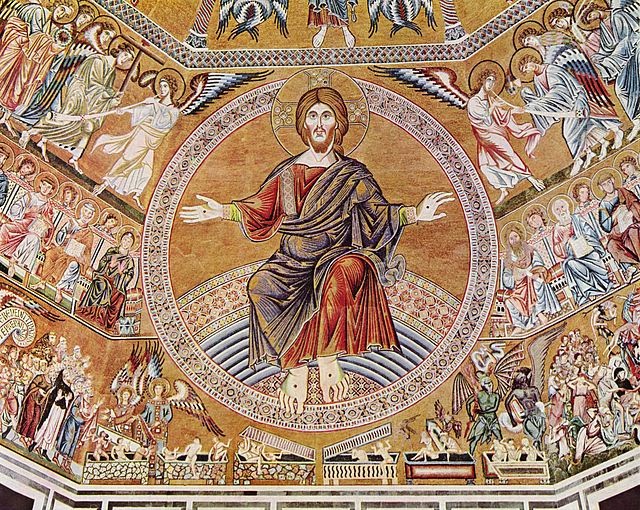December 22 - Mary of Nazareth
His mercy is from age to age
to those who fear him.
He has shown might with his arm,
dispersed the arrogant of mind and heart.
He has thrown down the rulers from their thrones
but lifted up the lowly.
the only joy of every human heart;
O Keystone of the mighty arch of man,
come and save the creatures
you fashioned from the dust.
to those who fear him.
He has shown might with his arm,
dispersed the arrogant of mind and heart.
He has thrown down the rulers from their thrones
but lifted up the lowly.
- Luke 1:50-52
Our
tradition has ascribed many titles to Mary. But I don’t believe there are many of us
who would call the Mother of God a revolutionary. But in her Magnificat, which is re-told in today’s Gospel, we hear Mary speaking as a prophet: The One who has done great things
in and for her is also changing the order of the world. The poor will be lifted
up, the hungry will be fed, and the least of all the peoples will be glorified.
There is no embrace of the status quo
in her words. Instead, they celebrate the seismic shift that the Incarnation caused
in hearts and in the world itself. John Howard Yoder, a Mennonite theologian,
describes Mary’s words in this way:
What it says is the language, not of sweet maidens, but of Maccabees: it speaks of dethroning the mighty and exalting the lowly, of filling the hungry and sending the rich away empty. Mary’s praise of God is a revolutionary battle cry.
Mary’s
words were fulfilled in the ministry of her Son, the Divine Physician and Good
Shepherd, who came to save those who were deemed least in eyes of the world.
And, in spiritual terms, Yoder continues, Mary was rejoicing in “gospel.”
In this sense, "gospel" doesn't mean the time-tested and Church-approved account of the life of Jesus. Originally not a religious word, evangelion was a secular term for “good news.” But this news wasn’t just a welcome piece of information. Instead, this “good news” was the report brought by a messenger that a distant battled had been won and that freedom had been preserved; it could also mean that a son had been born to a king, securing stability for the realm. So, “gospel” is good news that affects our welfare.
In this sense, "gospel" doesn't mean the time-tested and Church-approved account of the life of Jesus. Originally not a religious word, evangelion was a secular term for “good news.” But this news wasn’t just a welcome piece of information. Instead, this “good news” was the report brought by a messenger that a distant battled had been won and that freedom had been preserved; it could also mean that a son had been born to a king, securing stability for the realm. So, “gospel” is good news that affects our welfare.
 |
| "O King of the Nations" - Christ in Glory from the Baptistery of the Duomo, Florence attributed to Coppo di Marcovaldo, 13th century |
In these final days before Christmas, Mary’s revolutionary song of praise reminds us—in no
uncertain terms—why this long-awaited child was coming into the world. This is
truly Good News because he is bringing freedom and peace to a war-weary world.
And our world today needs to hear this revolutionary call for peace: peace in
our communities, our parishes, our homes, and, most especially, in our hearts.
May
Mary, the Queen of Peace, continue to inspire us to create a space of
welcome for the one who is the Prince of Peace.
A
Prayer for December 22 + O Rex Gentium
O
King of all the nations, the only joy of every human heart;
O Keystone of the mighty arch of man,
come and save the creatures
you fashioned from the dust.



Comments
Post a Comment